This article previously appeared on Russian Insider (4/7/15) and Global Research (11/7/15). See also: War without mercy in Yemen (8/7/15) and other articles about Yemen on PressTV and candobetter.
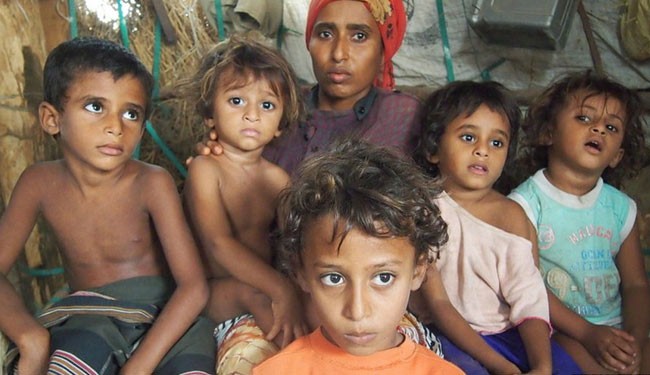
No "We are the children"
for the children of Yemen
80 percent of people in the Arab world's poorest country are in danger of starving to death under a US-backed and US-enabled blockade and bombing campaign.
Have the CNN, BBC, NBC, Fox, Sky, etc told you about that?
Obviously news that doesn't directly touch on Russia. However, obviously an enormously important one – this is the biggest humanitarian disaster in the world right now – but it's getting barely any attention because the US is contributing to it in a major way. (The Saudi campaign in Yemen wouldn't be possible without American diplomatic, intelligence and logistics backing.)
Another interesting (albeit in the light of 20 million lives in danger far less key) angle is that despite repeatedly causing such tragedies (260,000 people died in 2010-12 Somalia famine after a sustained US-Ethiopian military intervention there made an even greater mess of that country and up to a million who died in the 1990s due to sanctions on Iraq passed after the US destroyed chunks of the country's civilian infrastructure) the US still thinks it can take the moral high ground against Russia.
Even if Russia actually did everything the US accuses it of (and it doesn't) it would be far, far cleaner than the US, which is the world's premier killer today.
Preposterous! Even if Russia actually did everything the US accuses it of (and it doesn't) it would be far, far cleaner than the US, which is the world's premier killer today.
Twenty million people in Yemen, the poorest country in the Arab world, are at risk of dying from hunger or thirst. That's 80 percent of the country's population, which according to UN agencies badly needs emergency supplies of food and water, along with fuel and medicine.
This almost unimaginable crisis sounds like something out of a disaster movie. But the cause isn't an earthquake or a tsunami.
The main reason for all this suffering is months of merciless bombardment and blockade led by the richest Arab countries – Saudi Arabia and its neighboring petro-princedoms – and backed by the United States. Washington's providing the attackers with technical assistance, intelligence, and top-shelf armaments.
The countries bombing Yemen are targeting a rebel group they claim is a proxy for Iran. The evidence for that is very thin.
In fact, the conflict in Yemen is rooted in internal disputes. Try to stay with me...
In 2011, a nationwide uprising akin to those in Tunisia and Egypt deposed the country's autocratic leader, Ali Abdullah Saleh. There was no democratic election before his successor, the Saudi- and U.S.-backed Abd Rabbuh Mansur Hadi, took over – he ran unopposed. And there was no relief from the terrible poverty, unemployment, and government corruption that brought about the popular revolt.
So a few months ago, a reformist movement and militia called the Houthis – which had launched a handful of rebellions against Saleh in the past – took advantage of widespread discontent to conquer the capital, Sanaa. Hadi fled into exile, and the Saudis started bombing shortly thereafter.
Since then, local militias in central and southern Yemen have fiercely resisted the Houthis and army units still loyal to Saleh, who is now allied with his former foes. Meanwhile, a local franchise of al-Qaeda is fighting everybody.
In short, it's terribly complicated, and the bombs aren't helping.
The Yemenis caught in this crossfire were already thirsty and hungry before the war – unlike their Saudi neighbors, they don't have a lucrative oil supply. Now, with Yemen's borders closed, its airports shut down, and Arab navies enforcing an embargo at sea, the situation is breathtaking in its desperation.
Saudi Arabia and its friends, including the United States, support Hadi. Yet they have no discernible plan for winning beyond reducing Yemen to rubble and besieging civilians in the hope of securing the Houthis' surrender.
The Obama administration probably doesn't believe the Saudis' nonsense about the Houthis and Iran, but it's shown no interest in stopping the war.
In fact, the United States has even announced a full suspension of aid to Yemen for a year, undercutting its occasional murmurs of humanitarian concern. By endorsing this Saudi-led shooting match, Washington may hope to calm the Saudis' nerves about the ongoing nuclear talks with Iran, which Saudi Arabia opposes.
Is that what it's come to, soothing a bully's nerves just because it pumps a lot of oil?
Instead, the Obama administration should withdraw its support for the bombing, lift the blockade, and broker a power-sharing agreement between Yemen's competing factions. For the people of Yemen, it's beyond urgent.
 On SyrianaAnalysis, marking the 13th anniversary of the CIA-engineered dirty war in Syria, two Syrian journalists - Kervork Almassian and Hekmat Aboukhater discuss the appalling machinations of the anti-Syria lobby in Washington DC and the ignorance of the US public.
On SyrianaAnalysis, marking the 13th anniversary of the CIA-engineered dirty war in Syria, two Syrian journalists - Kervork Almassian and Hekmat Aboukhater discuss the appalling machinations of the anti-Syria lobby in Washington DC and the ignorance of the US public.
 The theft of Syrian oil by US forces illegally occupying Syria, and the US-NATO backed destruction of infrastructure and economy, have left Syrians in extreme danger of dying from cold and starvation this winter. Before the war Syria, which is the seat of one of the earliest civilisations, had a healthy economy and was host to many refugees from neighboring states.
The theft of Syrian oil by US forces illegally occupying Syria, and the US-NATO backed destruction of infrastructure and economy, have left Syrians in extreme danger of dying from cold and starvation this winter. Before the war Syria, which is the seat of one of the earliest civilisations, had a healthy economy and was host to many refugees from neighboring states.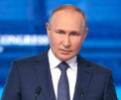
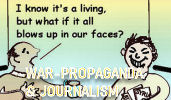 The classic test for editorial/journalistic bias is whether the news agency/agent interviewed both sides. In the Ukraine-Russia situation the Australian media has almost never interviewed the other side. Other tests include whether journalists make statements without giving examples, or personalise their attacks. Most Australian media also fails this test.
The classic test for editorial/journalistic bias is whether the news agency/agent interviewed both sides. In the Ukraine-Russia situation the Australian media has almost never interviewed the other side. Other tests include whether journalists make statements without giving examples, or personalise their attacks. Most Australian media also fails this test.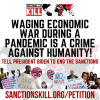 U.S. government strategists are using sanctions as a wrecking ball to demolish the globalized economy. It is a desperate struggle to preserve their global hegemony and a unipolar world. The policy of consciously demolishing supply chains of essential products amounts to a reckless war on defenseless civilian populations. Sanctions disrupt trade worldwide and send shockwaves far beyond the countries directly targeted. This is well understood by financial planners.
U.S. government strategists are using sanctions as a wrecking ball to demolish the globalized economy. It is a desperate struggle to preserve their global hegemony and a unipolar world. The policy of consciously demolishing supply chains of essential products amounts to a reckless war on defenseless civilian populations. Sanctions disrupt trade worldwide and send shockwaves far beyond the countries directly targeted. This is well understood by financial planners. While westerners are sending money to help Ukrainians, their elites are joyfully raiding Russian assets. This article is partly to explain a cartoon I recently published which apparently mystified a number of people. It pictured a pirate galleon called US-NATO with a crew talking about the treasure they had stolen from Russia, where a cartoon Biden asks a cartoon Victoria Nuland: "How much have we shaken Russia down, so far, Mrs Nuland?" and Nuland replies, "Well, let’s see.
While westerners are sending money to help Ukrainians, their elites are joyfully raiding Russian assets. This article is partly to explain a cartoon I recently published which apparently mystified a number of people. It pictured a pirate galleon called US-NATO with a crew talking about the treasure they had stolen from Russia, where a cartoon Biden asks a cartoon Victoria Nuland: "How much have we shaken Russia down, so far, Mrs Nuland?" and Nuland replies, "Well, let’s see.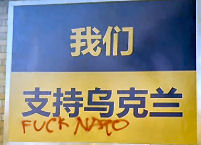 1.The Chinese Ministry of Foreign Affairs published a document on the history of U. S. genocide against Native Americans on their official website. Currently trending on Weibo, and being promoted by People’s Daily and other major media accounts. Yesterday, a recent documentary about U. S. military experiments on Danish children during the 1960s was one of the major trending items.
1.The Chinese Ministry of Foreign Affairs published a document on the history of U. S. genocide against Native Americans on their official website. Currently trending on Weibo, and being promoted by People’s Daily and other major media accounts. Yesterday, a recent documentary about U. S. military experiments on Danish children during the 1960s was one of the major trending items.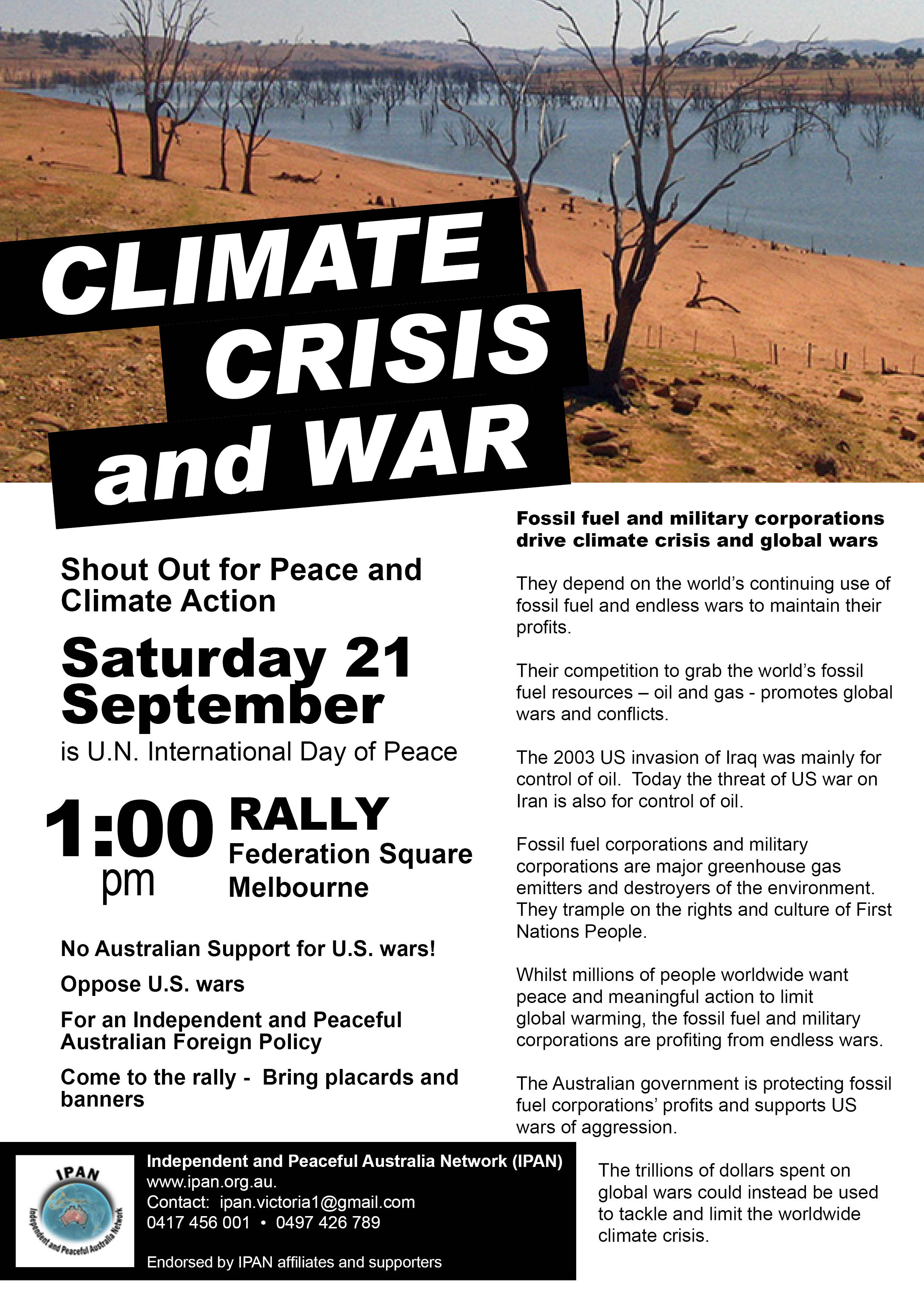
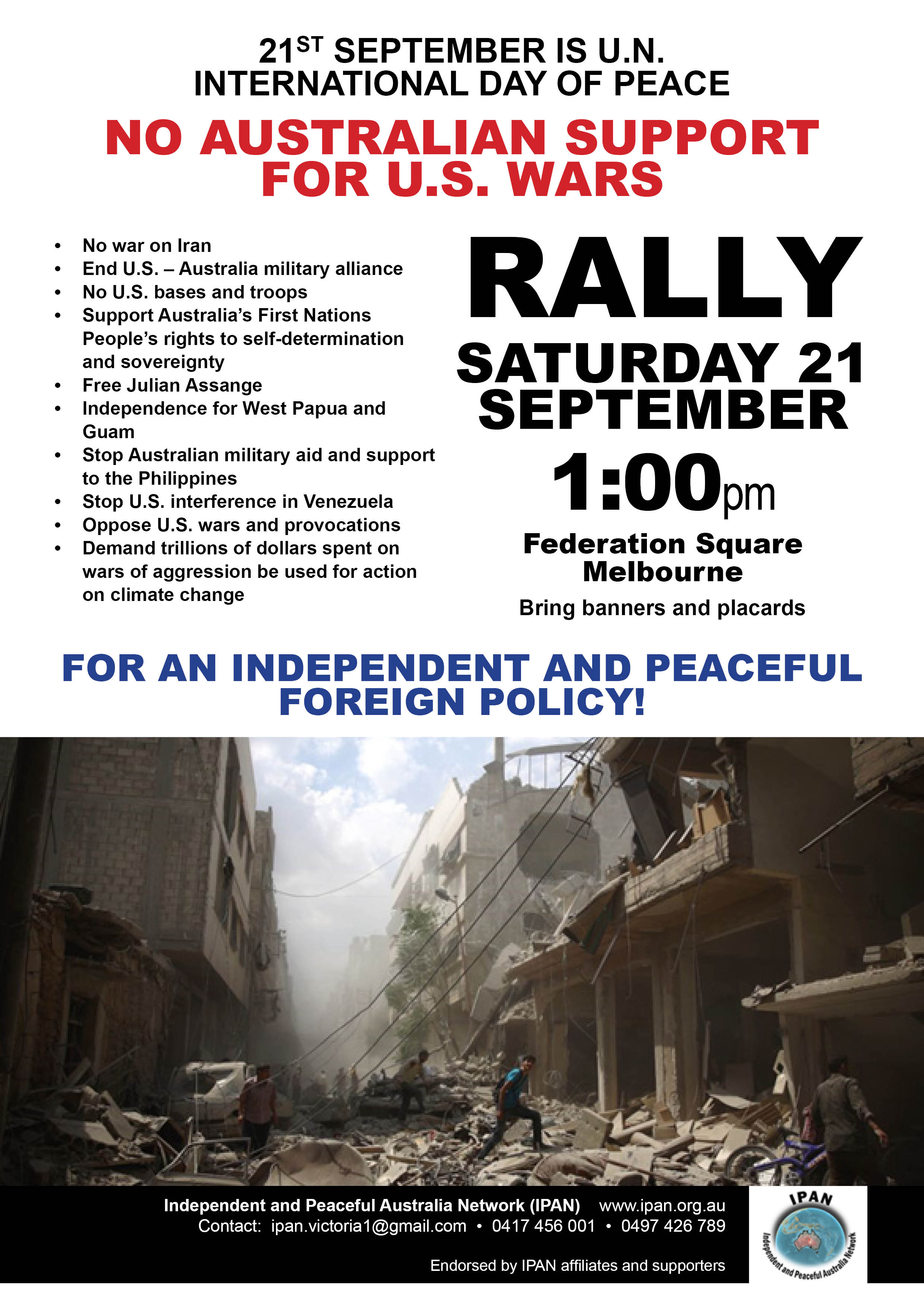
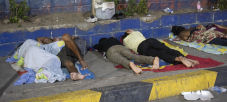 The crisis in Venezuela will not be solved by sanctions that “can lead to starvation”, a UN-appointed rights expert said on Thursday. Special Rapporteur
The crisis in Venezuela will not be solved by sanctions that “can lead to starvation”, a UN-appointed rights expert said on Thursday. Special Rapporteur 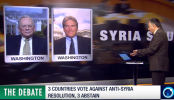 Brilliant Iranian interviewer Kaveh Taghvai's questions on the subject are inspired in this debate - more of a discussion - between J. Michael Springmann, a former US diplomat, and Michael Lane, the founder of American Institute for Foreign Policy, both from Washington. The two guests and the interviewer all have an unusually deep grasp of the drivers of turmoil in the region and of the foreign players involved. We get some very interesting new perspectives and interpretations of the latest moves around Syria. For instance, Turkey's position is often hard to fathom. We know it wants to take land from the north of Syria, whilst pretending to be maintaining safe zones. We know it wants to drive the Kurds back, but the usefulness of the refugee camps for Turkey as a military buffer may not have occurred to everyone. And, why did the United States bother to try to get votes on a draft UNSC resolution to sanction Syria for alleged poison gas incidents, when it would know that Russia would veto these highly dubious allegations? And China! We hear some new ideas on the motive, in terms of bargaining chips. In this episode of The Debate, Press TV has brought out layered and thoughtful explanations and comment on the foreign-backed war on Syria, particularly a Western-proposed UNSC draft resolution against the Syrian government that was vetoed by Russia and China.
Brilliant Iranian interviewer Kaveh Taghvai's questions on the subject are inspired in this debate - more of a discussion - between J. Michael Springmann, a former US diplomat, and Michael Lane, the founder of American Institute for Foreign Policy, both from Washington. The two guests and the interviewer all have an unusually deep grasp of the drivers of turmoil in the region and of the foreign players involved. We get some very interesting new perspectives and interpretations of the latest moves around Syria. For instance, Turkey's position is often hard to fathom. We know it wants to take land from the north of Syria, whilst pretending to be maintaining safe zones. We know it wants to drive the Kurds back, but the usefulness of the refugee camps for Turkey as a military buffer may not have occurred to everyone. And, why did the United States bother to try to get votes on a draft UNSC resolution to sanction Syria for alleged poison gas incidents, when it would know that Russia would veto these highly dubious allegations? And China! We hear some new ideas on the motive, in terms of bargaining chips. In this episode of The Debate, Press TV has brought out layered and thoughtful explanations and comment on the foreign-backed war on Syria, particularly a Western-proposed UNSC draft resolution against the Syrian government that was vetoed by Russia and China.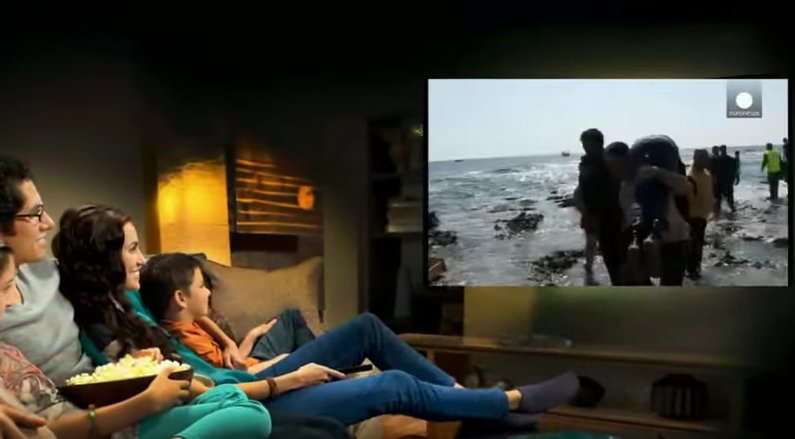

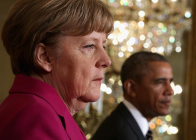
 Ulson Gunnar - NEO
Ulson Gunnar - NEO
Recent comments